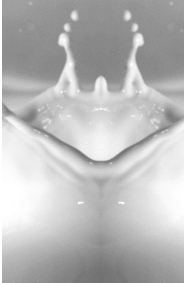Milk-phlegm link denied
 A UK doctor is out to bust the myth that drinking milk creates more phlegm.
A UK doctor is out to bust the myth that drinking milk creates more phlegm.
There is absolutely no need to avoid giving this nutritious and bone strengthening foodstuff to children with asthma, cystic fibrosis, or respiratory infections, argues children's respiratory consultant Dr Ian Balfour-Lynn, from London’s Royal Brompton Hospital.
“The notion that milk might generate excess phlegm–while chicken soup might get rid of it–was started in 1204 by Moses Maimonides, Jewish spiritual leader and court physician, in a treatise on asthma written for a relative,” Dr Balfour-Lynn writes in a new article for the journal Archives of Disease in Childhood.
The idea was later perpetuated by children’s health guru, Dr Spock, in his highly influential book on baby and child care published in 1946 - a tome that had sold more than 50 million copies by the time of his death in 1998.
But Dr Balfour-Lynn says there is not any evidence to back up these beliefs, citing studies dating back as far as 1948.
A possible explanation for the link has been mooted, but has yet to be proved, he adds. This involves a protein produced by the breakdown of certain types of milk, which is known to boost the activity of a gene that stimulates mucus production.
But this all happens in the bowel, and could only affect the respiratory tract if the integrity of the bowel was weakened by infection, so allowing the milk protein to travel elsewhere in the body, the doctor says.
It is highly unlikely that the common cold would do this, although it may be possible in people with cystic fibrosis, which is associated with gut inflammation, he suggests.
The more likely explanation lies in how milk feels in the mouth, he says.
Milk is an emulsion, while saliva contains compounds that make it stickier and which quickly interact with the emulsion, boosting its volume.
“This could well affect the sensory perception of milk mixed with saliva, both in terms of its thickness coating the mouth and the after feel–when small amounts of emulsion remain in the mouth after swallowing,” Dr Balfour-Lynn writes.
“This may explain why so many people think there is more mucus produced, when, in fact, it is the aggregates of milk emulsion that they are aware of lingering in the mouth after swallowing.”
“While certainly the texture of milk can make some people feel their mucus and saliva is thicker and harder to swallow, there is no evidence (and indeed evidence to the contrary) that milk leads to excessive mucus secretion,” he concludes.
“The milk-mucus myth needs to be rebutted firmly by healthcare workers.”








 Print
Print